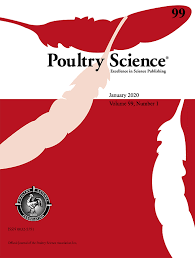Document type : scientific article published in Animals
Author: Nadja Affenzeller
Résumé en français (traduction) : Les situations excitantes et émotionnelles peuvent améliorer les performances cognitives et la mémorisation des événements. Récemment, l’amélioration des performances d’entraînement des chiens Labrador Retriever grâce à 30 minutes de jeu chien-homme immédiatement après l’acquisition d’une nouvelle tâche, par rapport à une période de repos, a été démontrée. Cette étude de suivi a utilisé le même plan d’étude pseudo-aléatoire, contrebalancé, entre sujets, et 11 Labrador Retrievers ont été réentraînés dans le paradigme identique de discrimination à deux choix après une période d’un an. Le groupe d’activités ludiques a eu besoin de beaucoup moins d’essais et a fait beaucoup moins d’erreurs pour atteindre avec succès le critère de réentraînement (test U de Mann-Whitney, la valeur critique de U à p < 0,05 est 5, U = 5, Z = 1,73, p = 0,04 et U = 4,5, Z = 1,8, p = 0,03, respectivement). Suite à la simplification du modèle d’une analyse générale linéaire à facteurs multiples/covariables, le type d’intervention, le nombre d’essais nécessaires pour réapprendre la tâche après 24h, la fréquence cardiaque moyenne pendant l’intervention un an auparavant et l’âge ont été corrélés de manière significative au nombre d’essais et d’erreurs nécessaires pour résoudre la tâche. Une différence significative due à la répartition des interventions (fréquence cardiaque pendant l’intervention, essais nécessaires pour réapprendre la tâche après 24h) entre les groupes a été confirmée. L’âge n’a pas différé de manière significative entre les groupes ; néanmoins, les effets du vieillissement ne peuvent être totalement exclus, étant donné la faible taille de l’échantillon. Aucun effet de l’entraîneur ni des concentrations de cortisol (de l’année précédente) n’a été observé. C’est la première fois qu’il est démontré que l’activité post-entraînement peut influencer la mémoire jusqu’à un an après l’acquisition de la tâche.
Résumé en anglais (original) : Arousing and emotional situations can improve cognitive performance and the memorability of events. Recently, the enhancement of training performance in Labrador Retriever dogs through 30 min of dog–human play immediately after acquiring a novel task, when compared to a resting period, was demonstrated. This follow-on study used the same pseudo-randomized, counterbalanced, between-subject study design, and 11 Labrador Retrievers were re-trained in the identical two-choice discrimination paradigm after a period of 1 year. The playful activities group needed significantly less trials and made significantly less errors to successfully reach the re-training criterion (Mann–Whitney U test, critical value of U at p < 0.05 is 5, U = 5, Z = 1.73, p = 0.04 and U = 4.5, Z = 1.8, p = 0.03, respectively). Following model simplification of a multiple factor/covariate general linear model analysis, the type of intervention, the number of trials needed to re-learn the task after 24 h, the average heart rate during the intervention a year ago, and age were significantly correlated to the number of trials and errors needed to resolve the task. A significant difference due to intervention allocation (heart rate during the intervention, trials needed to re-learn the task after 24 h) between the groups was confirmed. Age did not significantly differ between the groups; nevertheless, the effects of ageing cannot be fully excluded, given the low sample size. No effects of the trainer and of the cortisol concentrations (of the previous year) were observed. This is the first evidence that post-training activity may influence memory up to 1 year after task acquisition.






